Bodybuilders and physique athletes sometimes get laughed at for obsessing over their diets—planning things out to the gram, measuring food on scales, and being able to break down a meal into macros by sight.
But in my experience, they're a really advanced group when it comes to nutrition. They understand a lot of things that people in general society don't.
I want people to be more educated about what they eat. It's a major part of why I became a professor and researcher: to share the latest insights that science has to offer about how to eat to build muscle, get shredded, and built your best physique.
Don't rely on the latest fad or macronutrient witch hunt for guidance on something as crucial as nutrition.
Learn the fundamentals of eating for success in Mass Class!
Mass Class: Nutrition
Watch The Video - 11:08
Question 1 What's a good overall approach to protein?
First off: As a rule, I think bodybuilders—and everybody else, too—should focus on really nutrient-dense foods that have a lot of vitamins and minerals and are high in fiber. These things are good not just for muscle growth, but also for health. It's far too easy to think that if you've got your macros down, you've got a good diet. But you also need—yes, need—leafy green vegetables as often as possible. Make sure you get them.
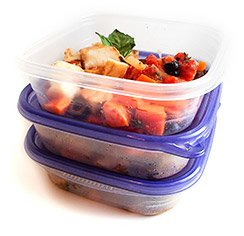
You've been told that before, though. The question is about protein, and I'm eager to answer it; protein and amino acids have been the focus of a lot of my research. I know a lot of people approach protein by asking the question, "How much do I need in a single day?" But that's going about it the wrong way.
Instead, consider asking, "How much protein should I have at each individual meal, and how frequently can I consume my meals?"
For a 180-pound guy, 30-40 grams of protein per meal has been shown to be the amount that will optimize the muscle-building response. That amount obviously will go up or down depending on if you're, say, a 250-pound guy or 130-pound woman.
When it comes to meal timing, everybody looks for the "sweet spot," but it's different for everybody based on their needs, their lifestyle, and how much they can comfortably eat. I know guys who chow down as many as eight times every day, but that's way too much for most of us. My recommendation is to only eat 4-5 times per day, making sure that you get enough protein in each of those meals.
Then, between those meals, we found that branched-chain amino acids are effective at keeping protein synthesis spiked. That's not just some bodybuilding mumbo jumbo—it works! If you're really into bodybuilding nutrition, you know that leucine is the king of branched-chain amino acids.
To maximize the muscle building response, you need about 3 grams of leucine per serving, and that's actually what the 30-40 g of protein in your meals gives you. Add in a few BCAA "snacks," either with food, shakes, or supplements, and you're good to go.
Question 2 What are the best protein sources?
I know some people don't handle dairy very well, but as protein sources go it's hard to beat. Studies are showing that the more servings of dairy people have per day, the healthier they are, the leaner they are, the more muscle they have. So it's not a stretch to say it's one of the most perfect sources of protein that we know of right now.
One reason dairy is so great is the way you can tailor it to fit your diet. In their natural state, dairy products contain all three macronutrients: protein, fats, and carbohydrates, and how much you get of each is determined by how dairy is processed and filtered. You might get more of the protein, a lot of fat, or a lot of lactose, which is a sugar found in milk that's high in carbohydrates.
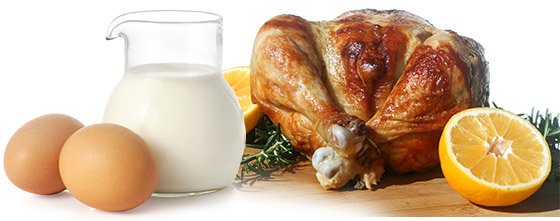
Bodybuilders, of course, want to get the protein out of dairy, and that's exactly what whey is: high-quality protein that's been filtered out from the other ingredients. The same thing goes for casein. Then, how you prepare the final product will determine what you get in terms of macronutrients.
Aside from that, though, most animal-based sources are going to be ideal from a protein perspective. Eggs and lean meats like beef, steak, turkey, and chicken will all help you grow. Salmon is excellent as well, not only for protein, but also as a source of nutrients like omega-3 fatty acids, which are going to help you stay lean and healthy.
Supplements are helpful here as well, but for overall nutritional impact, food is still king.
Question 3 What's a smart approach to carbs?
So once you have your protein figured out, it's time to talk about energy. That's going to come from carbohydrates and fat, and the amount you need ultimately depends on how hard you train. Someone training three days per week, for example, won't need as much energy as someone training twice every day. That person's carb needs are going to increase accordingly.
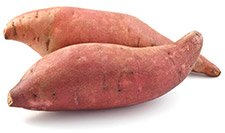
As far as your sources of carbohydrates, you want foods that will keep you full, but you also want things that are going to fuel your workouts. In both cases, you get the best results from moderate- to low-glycemic carbs like oatmeal and sweet potatoes. High-glycemic carbs, on the other hand, give you a quick rush of blood sugar followed by a crash. Pretty soon you'll be starving, because you're going to be hypoglycemic. Your blood sugar will get low, and you won't be able to focus on your training.
My colleague Dr. Don Layman at the University of Illinois has a good recommendation for selecting carb sources. He says you should almost always keep the ratio of carbohydrates to fiber at 5:1 or lower. For example, say you're reading the label of a loaf of bread, and it says 20 grams of carbs, 5 grams of fiber.
That's 4:1, which is perfectly within that range. A sweet potato is around the same ratio. Compare that with another piece of bread that has 20 g of carbs and 2 g of fiber. That's 10:1, about the same as a regular potato.
When you're done training, it's OK to eat a meal with some higher glycemic carbs and lower fiber so you can replenish your body's carbohydrate reserves faster. Post-exercise, you're in a state where it's far less likely that you'll store these carbs as fat. But the rest of the time, try to balance your carbs out with fiber as much as possible.
Question 4 What's an ideal bodybuilding breakfast?
Everything I said about carbs is especially true right after you've woken up. As I've written before, you want to be conservative with carbs, but it's OK to have a little bit more fat, like whole eggs.
Your carbs at breakfast should also be fibrous in nature—think oatmeal. But be sure to save room for 30-40 g of protein you also should get at every meal, from the eggs and, say, some yogurt. There's a good reason these classic breakfast foods are so popular!
Some people might hear this and say, "Oh, I should limit my carbs all day long." I'm not saying that. Carbs definitely have their place, especially if you train hard.
But more and more studies are coming out showing that if you favor certain macronutrients at certain times of the day, you can program your metabolism to burn fat and spare carbs throughout the day, so you end up leaner at the end of the day.
Question 5 How much should I worry about sodium?
Sodium is a controversial topic among athletes. Bodybuilders are always like, "Oh my god, I don't want to hold water." But really, the only time they need to be worried about holding water is pre-contest, and even then, it depends on a number of factors.
As for the rest of us, well, we need to hold on to water! If you're doing CrossFit, for example, you might train outside with no air conditioning, and you sweat a lot. You might lose a liter of fluid in a single WOD, maybe as much as a couple of pounds of weight overall, and with that, you are going to lose sodium and other electrolytes. You need to replace them, not only for your athletic performance, but for your health!
Plus, according to the cell swelling theory I discussed in the training edition of Mass Class, we believe that your muscles grow because they swell, and studies show that if you're dehydrated, cells might actually get smaller. That's the opposite of what you want!
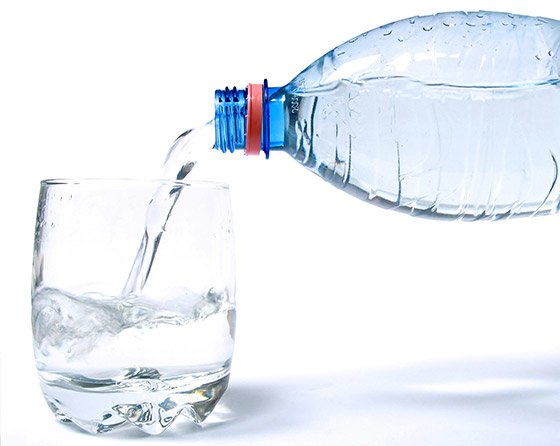
Simply replacing the water you lose isn't enough. If that were the case, you could just drink distilled water, but it's been shown that when people do that, they pee out most of what they drink and end up losing more electrolytes along the way. So drink water—not distilled water—and realize that if you sweat and work hard, it's OK to put some salt on your food.
Question 6 When is it OK to cheat?
You just ate something that was most definitely not on your meal plan. Maybe you just ate a whole plateful of that thing. Does this mean your life is over? Does it mean you need to do five hours of cardio tomorrow to somehow "make up for it?" Definitely not, but I see a lot of bodybuilders freak out in exactly this way.
Hey, it happened. Just get back on your diet afterward. Obviously, on special occasions, like if it's Christmas, your birthday, or your friend's wedding, it's OK to have a piece of cake. Just go back on your program.
All the good you do day-in and day-out leaves room for a little bad. Let special occasions be special!
Question 7 What if it feels like my diet isn't working?
Nutrition sometimes feels like a totally different animal than training, since it is so much more integrated with our personal and social lives. But just like training, once we make the commitment to systematic nutrition, the most important thing is simple consistency.
Say you started a new diet, and a few days later you feel like it's not working. Maybe you're not seeing any immediate results, or it feels a bit more demanding than you'd like. Don't throw in the towel! Bodybuilding is a long process. Look at those incredible men and women onstage—that didn't happen in a week.
It took years of focus and dedication in the gym, and in the kitchen. Come up with a game plan and stick to it!

Recommended For You

Mass Class Training: The Fundamentals Of Muscle Growth
I want to bring this sport to a new level with the latest science has to offer, and I want you to ride along with me. Pull up a chair and get out your notebook. Mass Class is about to begin.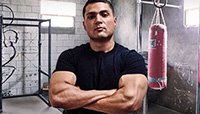
Ask The Muscle Prof: What's The Deal With Occlusion Training?
Restricting blood flow to the arms or legs during training may sound crazy, but the Muscle Prof has been front and center on the latest research into what is actually a cutting-edge hypertrophy technique!

